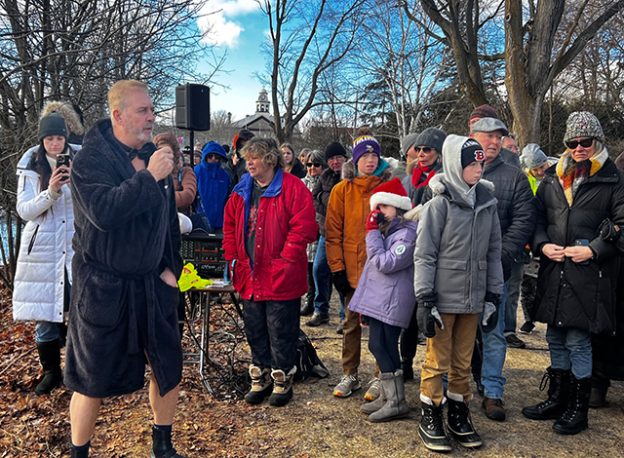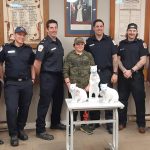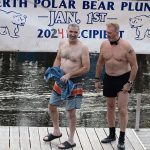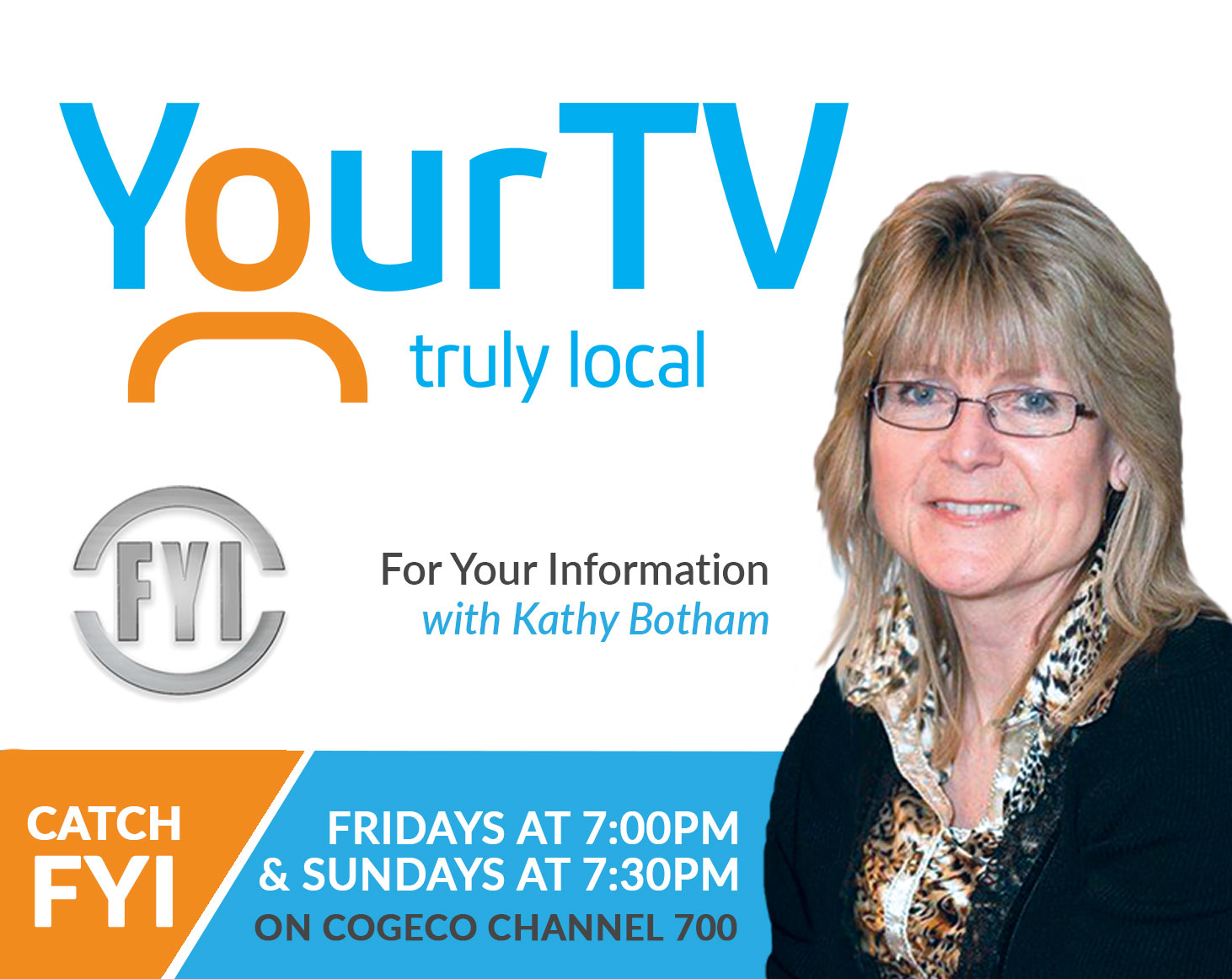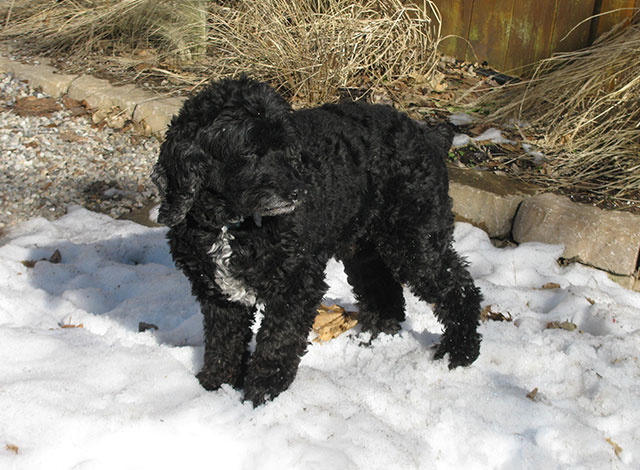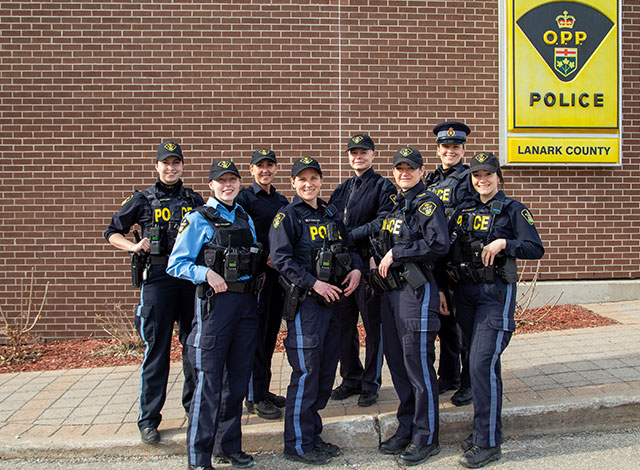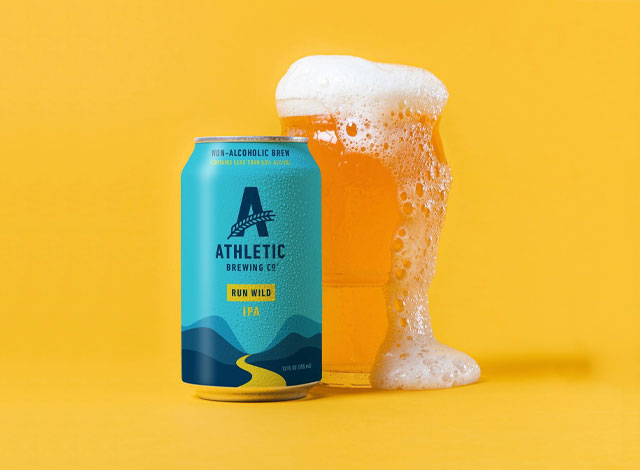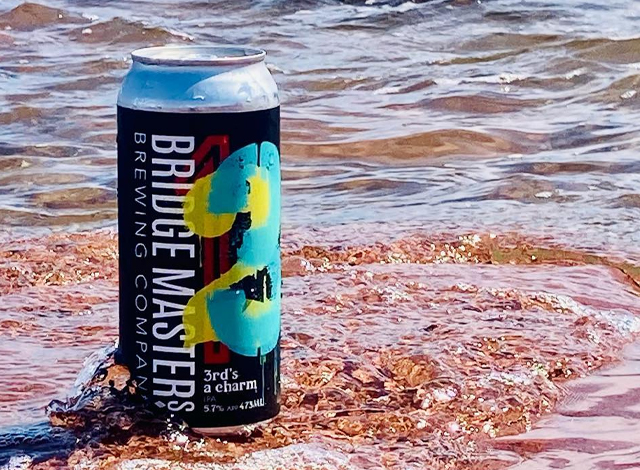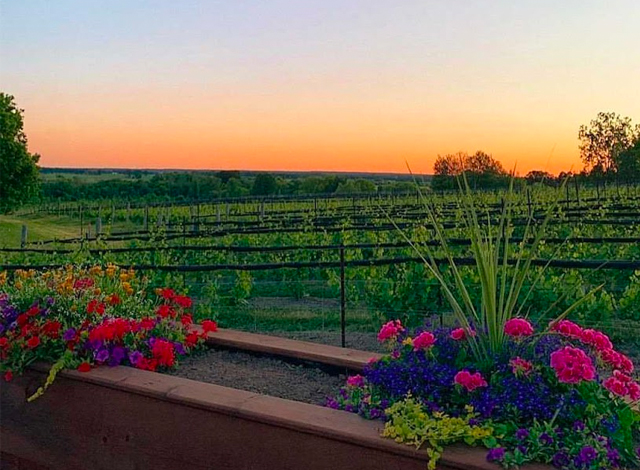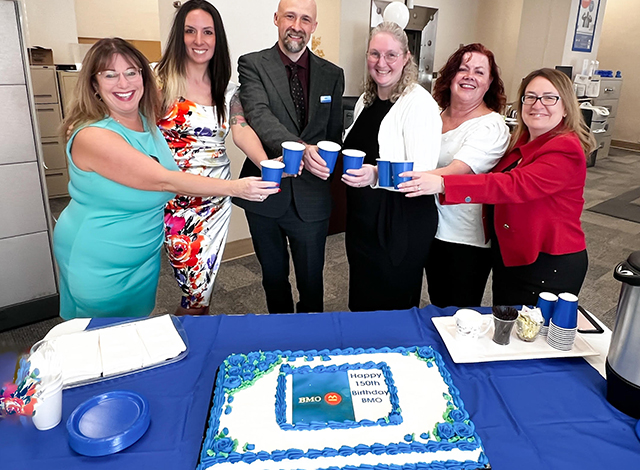2024 Perth Polar Bear Plunge hits $30,000 for this year’s recipient
BY LAURIE WEIR
The Perth Polar Bear Plunge was a huge success for the Rural FASD Support Network in more ways than one.
Some $30,000 was raised by 144 participants, but for Rob More, the board chair of Rural FASD (Fetal Alcohol Spectrum Disorder) Support Network, it was about having conversations that really hit home.
When reached Monday (Jan. 1) evening by phone, More said he was “exhausted, but over the moon” with the community support as they were expected to reach their $30,000 goal.
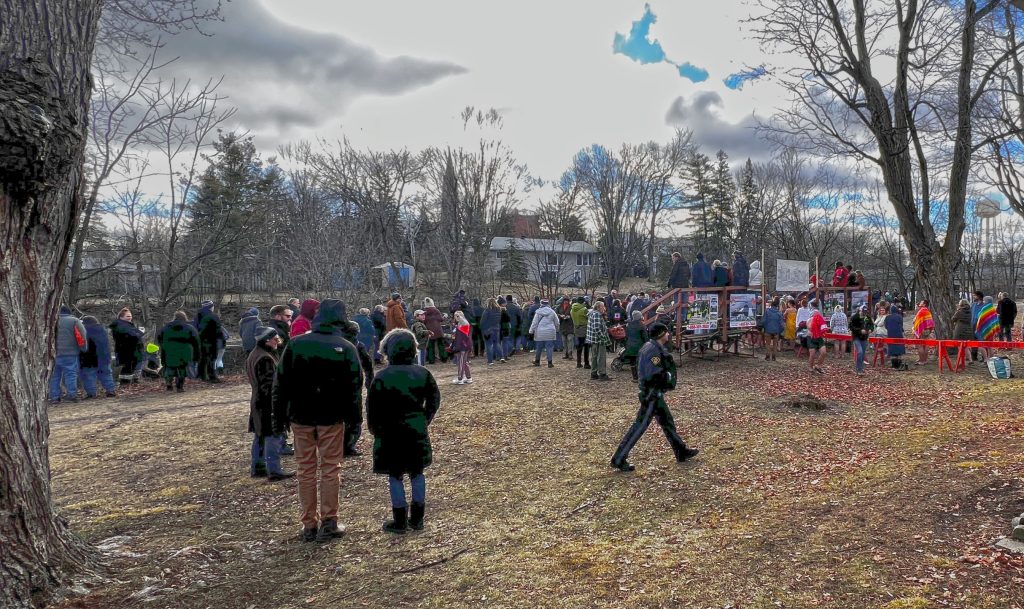
“We are so happy with how this all came about. Yes, the money is wonderful, but it was not the primary objective here. There were 46 of us out of the group in attendance, with different roles and responsibilities.”
More said it was about making those community connections over the past year while promoting their organization as the recipient of the Perth Polar Bear Plunge.
“To be able to walk away and see all that community support, where Lanark County is saying, ‘We want to help you. We believe in you. We appreciate you and where you’re coming from.’ That is hope! It is a much more powerful thing for people to recognize the Rural FASD name and know who we are and what we represent.”
It’s huge, he said.
“People really and truly care and want to help. We just need to continue putting ourselves out there and be willing to be brave and share our stories.”
Plungers enjoyed a breakfast inside the Perth-Upon-Tay Royal Canadian Legion, branch 244, before braving the plunge.
PROMOTION
Rural FASD Support Network became the recipient on Jan. 1, 2023. That’s when More and his team started promoting the event by attending events, fairs and parades in Lanark, Leeds and Grenville counties.
“We were working off what Cornerstone Landing (last year’s recipient) did last year (with gift bags to the first 100 jumpers to register) and tried to build upon that,” More said.
(Next year’s recipient will be Hospice Hub.)
The jump’s founder “Dave Lavery and Alfred VonMirbach have been huge resources for the entire year,” More said.
Funds from the plunge are earmarked to continue to build human resources in the organization, More said.
Their executive director was paid through Lanark-Frontenac-Kingston MP Scott Reid’s charity of choice in 2022. He donated $25,000 to Rural FASD Support Network. Reid has been donating to one or more local charities, servicing his riding, an amount equivalent to the value of a pay increase that the MPs voted for themselves in 2001.
More said he was thankful for the support of his local MP and that of MPP John Jordan who was also at the polar plunge.
Since those dollars have now run out, More said they’re trying to find new avenues of funding.
“This is going to be used to continue to maintain the capacity we have right now within our organization,” More said of this year’s plunge funds. This will support the program coordinator, and a youth-coordinator/marketing person. They also rent space at the Open Doors complex, located at 88 Cornelia St., W., Unit A1.
EYE OPENER
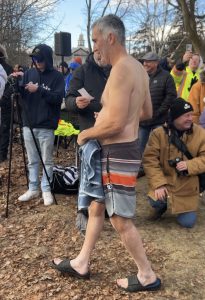
As a group, More said they had an opportunity to receive “a real eye opener” when they attended a national FASD conference in November for the first time.
“We got a real understanding what the FASD lens looks like across Canada. We’re the largest organization in Canada in terms of the amount of people we are helping right now.”
Rural FASD Support Network helped 268 families and as many as 600 individuals in 2023.
“Once we got into conversations with folks, what we discovered is a testimony to the counties of Lanark, Leeds and Grenville. We do a really good job here of having those direct one-on-one conversations and people coming together and helping each other.”
The polar plunge started some great discussions this year, More noted, as they engaged in 8,500 direct conversations by attending 22 events and festivals over the past year to promote their organization and the plunge.
More said it’s hard to imagine how their group is the epicentre of the country, “because no one is doing what we are doing here in Lanark, Leeds and Grenville right now.”
WHAT IS FASD DOING?
A study published by Canada FASD Research Network called “Towards Healthy Outcomes” identifies 12 sectors that need support for people with FASD to have a positive life outcome.
“Those things including having a doctor, to be able to go to school, to have supportive family structure, employment support, and so on,” More explained. “When someone contacts the office, we help to identify what the individual has and what they are lacking.”
Once that is identified, Rural FASD Support Network will provide the system navigation piece, More said.
“A lot of times, there is another organization that can provide that piece that is missing.”
More said family cohesion is a foundational piece of the puzzle.
“You can help the child, but if their parents are falling apart, they’re not accomplishing anything,” he said. “It’s an entire family approach and recognizing siblings are impacted just as much as anyone within that family unit – and that looks different for each person and what their role is.”
Provincial funding is only available, right now, for youth under the age of 18, More noted. But FASD is not something you outgrow.
“There is no adult support right now in the province,” he said, but the conversations they are having at the provincial level “are extremely good.”
For more information on Rural FASD Support Network, visit ruralfasd.ca
WHAT IS FETAL ALCOHOL SPECTRUM DISORDER?
FASD, according to the Government of Canada’s website, describes the impacts on the brain and body of someone exposed to alcohol in the womb. It’s a lifelong disability but is preventable with the right services and supports.
People with the disorder may need support with learning, memory, attention, social skills, motor skills, physical health, communication or emotional regulation.
FASD is caused by exposure to alcohol in the womb. It is not hereditary.
Alcohol harms cell development. If the birthing parent consumes alcohol during pregnancy, it passes into the developing fetus. This can cause harm to the developing fetus’s brain and body.
More than 400 other health conditions are related to or commonly occur together with fetal alcohol spectrum disorder. They can affect almost all systems in the body. The most common co-occurring health conditions can impact behaviour, communication, attention and hyperactivity, and physical and mental development.
Early and appropriate support can improve outcomes for people with fetal alcohol spectrum disorder.
Accurate diagnosis is important for effective treatment. The signs and symptoms of fetal alcohol spectrum disorder are often mistaken for other conditions.





